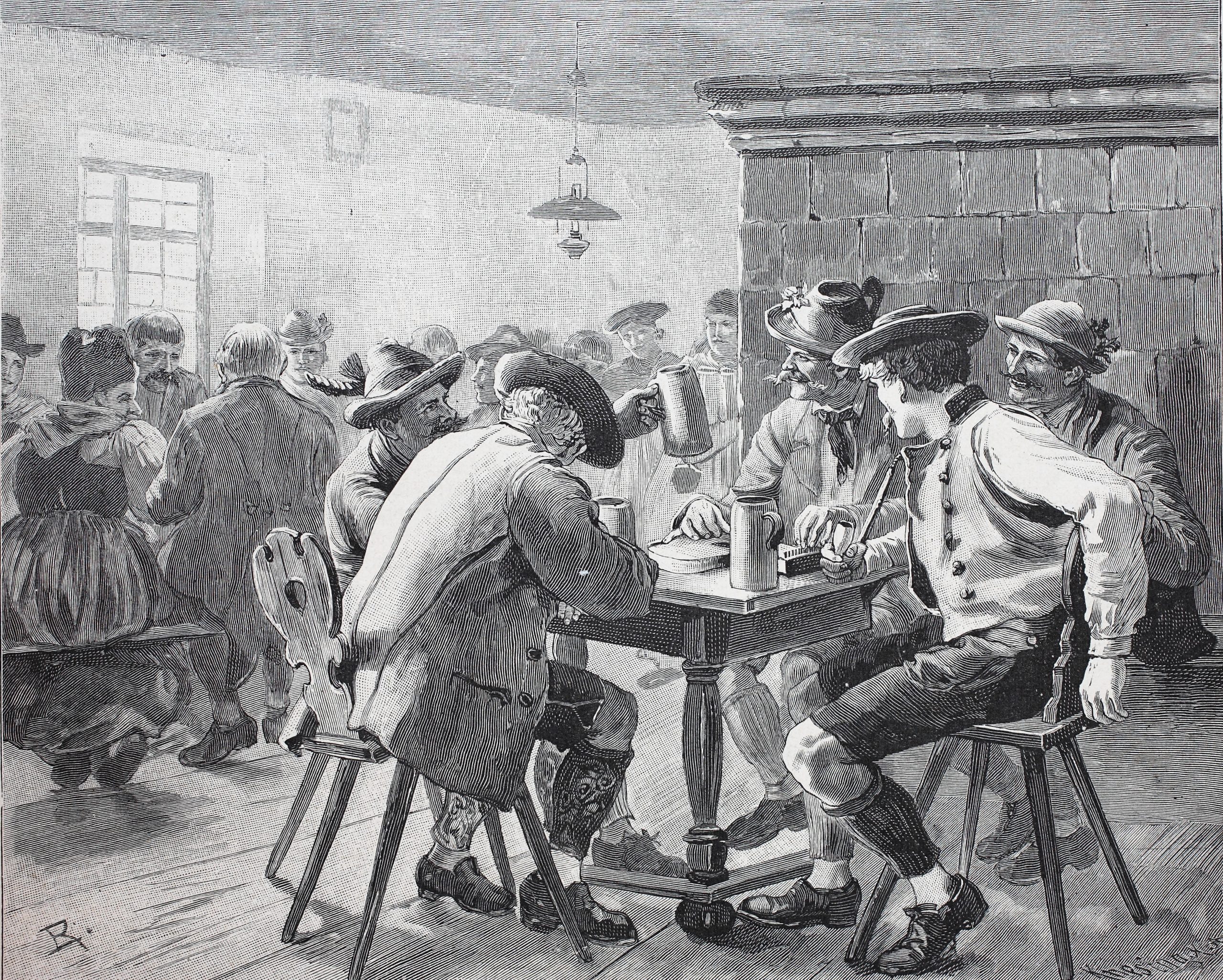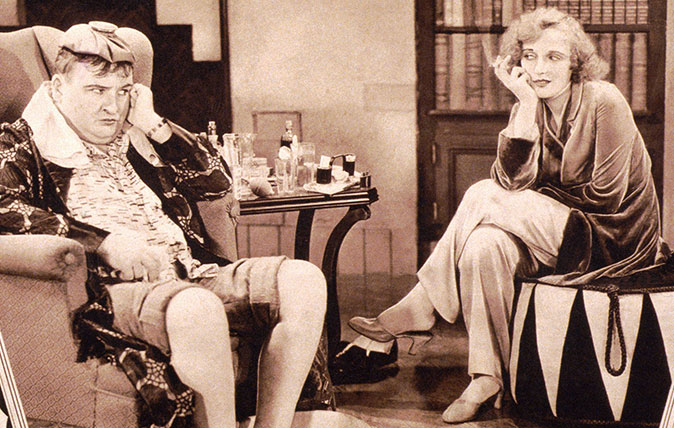You're going to break all your New Year's Resolutions, but don't worry — you're in good company
New Year's Resolutions: we make them, then we break them. However, as Felicity Day discovers, our famous forebears — from Samuel Pepys to Virginia Woolf — were equally as bad at keeping their New Year’s resolutions.


Few things about the festive season divide opinion like New Year’s resolutions. Love them or hate them, as the clock strikes midnight on December 31, the Champagne glasses clink and Auld Lang Syne echoes all around, some 14 million of us will make one, committing ourselves to punishing exercise regimes and restrictive diets, curbing habits, taking up new hobbies and travelling more.
In doing so, we’re keeping up a tradition thousands of years old. Our modern-day resolutions are thought to have their origins in Babylon and ancient Rome, where it was the custom to make promises to the gods in exchange for favour in the year ahead. For early Christians, the New Year became a time to look back at their conduct during the past 12 months and resolve to do better in the next, from which practice the secular ritual we embrace today evolved.
However, it’s not only the custom that’s as old as Father Time. So are the very resolutions we trot out year after year. Delve into a diary scribbled by one of our forebears, flick to the first day of January and chances are you’ll find a promise pretty similar to the ones we’ll be rashly making as we wave goodbye to 2021.
Take Samuel Pepys. In time-honoured ‘twix tmas’ tradition, December 30, 1662, finds him gaily indulging in ‘five or six glasses of wine, which liberty I now take till I begin my oath again’ — an oath to abstain from ‘wine, plays, and other expenses’ that he regularly renewed, not only on New Year’s Eve, but on other high days and holidays, too.
“In January 1905, P. G. Wodehouse, so the story goes, resolved to learn the banjo, but his housemate pawned it and lost the ticket”
Pepys, it seems, was a firm believer in the motivational power of the resolution. Although, reassuringly, for those of us who find our determination takes a nosedive after an indulgent 12 days of Christmas, he’s also an early example of hope triumphing over experience. Mere weeks after swearing off wine the previous January, he was drinking it ‘upon necessity, being ill for want of it’.
On another occasion, his diary shows him lapsing in spectacular fashion, seeing not one, but two plays in a single day. Time and again, he resorts to creating elaborate justifications for his transgressions: convincing himself that an evening at Drury Lane was no breach of his oath, as the theatre was not in being when it was sworn; or that the hypocras he imbibed was ‘only a mixed compound drink, and not any wine’. Sorry, Pepys, it definitely was.
Fast-forward to the 18th century and January 1, 1787, sees novelist Fanny Burney making a resolution of mindset, a familiar one, perhaps, to anyone who has suffered from back-to-work blues. Rueing the day that she had been offered a position in the household of Queen Charlotte, a position she could not refuse, however boring or demeaning it might be, she pledged ‘to curb all spirit of repining, and to content myself calmly — unresistingly, at least — with my destiny’.
Sign up for the Country Life Newsletter
Exquisite houses, the beauty of Nature, and how to get the most from your life, straight to your inbox.
The recurring resolution of her friend and mentor Dr Johnson, meanwhile, is a perennially popular one: to rise earlier, in his case ‘at eight or sooner’, his usual habit being to ‘lye till two’. Being only infrequently achieved — you might be heartened to know — he sometimes deployed a more forgiving form of words: ‘to rise by degrees more early in the morning’.
Like Pepys, Johnson usually made more than one resolution, vowing to ‘drink little wine’, to ‘be temperate in food’ and to ‘read the Bible through’. Unlike Pepys, however, he was stricken by his inability to wean himself from his ‘sinful pleasures’. No man, he began to think, could be ‘convinced of his imbecility’ when it came to resolutions, ‘but by length of time, and frequency of experiment’.
"Virginia Woolf broke her first resolution — ‘to have none. Not to be tied’ — within seconds"
Even so, the next generation were willing to give them a go. Queen Victoria — wisely, perhaps — usually kept hers between herself and God. Nonetheless, in December of 1837, we find her courtier Charles Greville resolving to ‘give up the turf’ — his expensive addiction to betting on the racing. Johnson’s theory was not disproved; in June 1838 he lost £1,400 at Epsom in a single day. Nor was it in 1852, when Robert Browning, conscious of a drop in productivity since swapping his quiet London study for a home on the Continent with a wife and new baby, resolved to pen one poem every day. He managed only three.
By the turn of the 19th century, a now-acknowledged scepticism of the New Year’s resolution was firmly rooted, yet the ritual endured. In January 1905, P. G. Wodehouse, so the story goes, resolved to learn the banjo, but was forced to abandon his plan because his housemate Herbert Westbrook — either in dire need of a post-Christmas cash boost or simply driven mad by the incessant twanging of the instrument in Wodehouse’s inexpert hands — pawned it and lost the ticket.
In 1915, we discover Katherine Mansfield vowing to keep a diary for posterity, a resolution she was forced to repeat the following year after managing two months. And, in 1931, Virginia Woolf broke her first resolution ‘to have none. Not to be tied’. Within seconds, she had gone on to list at least six more, including a thoroughly modern commitment to self-care: ‘To go out, yes — but stay at home in spite of being asked.’
Frighteningly efficient, by comparison, was Noël Coward. On January 3, 1947, worn down by work troubles, he made a ‘brisk but firm’ resolution ‘to stand no more nonsense’ — and began immediately. By lunchtime, his designer Gladys Calthrop had left his house in a gale of tears, having been told that ‘her egotism was past bearing’ and her sets for Pacific 1860 looked more like Torquay than a South Sea island.
Yet, fret not if you fare less well with your own for 2022. Like the indefatigable Dr Johnson, don’t let it stop you trying. ‘Of resolutions I have made so many with so little effect that I am almost weary,’ he admitted at 69. ‘But, by the Help of God, am not yet hopeless.’

Curious Questions: What is the perfect hangover cure?
If there's a definite answer, it's time we knew. Martin Fone, author of 'Fifty Curious Questions', investigates.

How to cure a hangover
The very best tried and tested ways to get rid of a hangover reviewed by Charles Campion
Country Life is unlike any other magazine: the only glossy weekly on the newsstand and the only magazine that has been guest-edited by HRH The King not once, but twice. It is a celebration of modern rural life and all its diverse joys and pleasures — that was first published in Queen Victoria's Diamond Jubilee year. Our eclectic mixture of witty and informative content — from the most up-to-date property news and commentary and a coveted glimpse inside some of the UK's best houses and gardens, to gardening, the arts and interior design, written by experts in their field — still cannot be found in print or online, anywhere else.
-
 Helicopters, fridges and Gianni Agnelli: How the humble Fiat Panda became a desirable, design classic
Helicopters, fridges and Gianni Agnelli: How the humble Fiat Panda became a desirable, design classicGianni Agnelli's Fiat Panda 4x4 Trekking is currently for sale with RM Sotheby's.
By Simon Mills
-
 What's a 'wellness village' and will it tempt you back into the office?
What's a 'wellness village' and will it tempt you back into the office?The team behind London's first mixed-use ‘wellness village’ says it has the magic formula for tempting workers back into offices.
By Annunciata Elwes